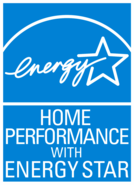EnergyPro has on staff people with Certifications from the:
- Association of Energy Engineers (AEE),
- Building Performance Institute (BPI),
- US Green Building Council (USGBC),
- Infraspection Institute
These Certifications provide us the expertise to suggest and/or recommend to Customers, Contractors, Architects, Builders, etc. on what may be important Energy Efficiency and Energy Code considerations. And, we are Engineers so what we don’t know the answer to right away, we WILL find out the answer.
The new Energy Code that came in to effect on October 3rd, 2016 has some rather daunting new requirements. EnergyPro is in the process of creating a presentation for Contractors and Architects to assist them in finding solutions for compliance with the code.
There is also a large stock of older buildings in the NYC Metro area. These were built in a time when Energy Efficiency was not a priority … and possible not even a well-known concept. We can help building owners try to find cost effective Energy Savings measures for their buildings. It is not always possible to find solutions that are low cost, high return, but we try.
Information sourced from the NY State Energy Research and Development Authority (NYSERDA, pronounced Nigh Serda) suggests that complying with new Energy Code requirements can save 8% of annual energy costs in Residential buildings and 5% in Commercial buildings. A significant reduction long-term, e.g. for a Commercial Building, that could mean hundreds of thousands of dollar in just 15-20 years.




